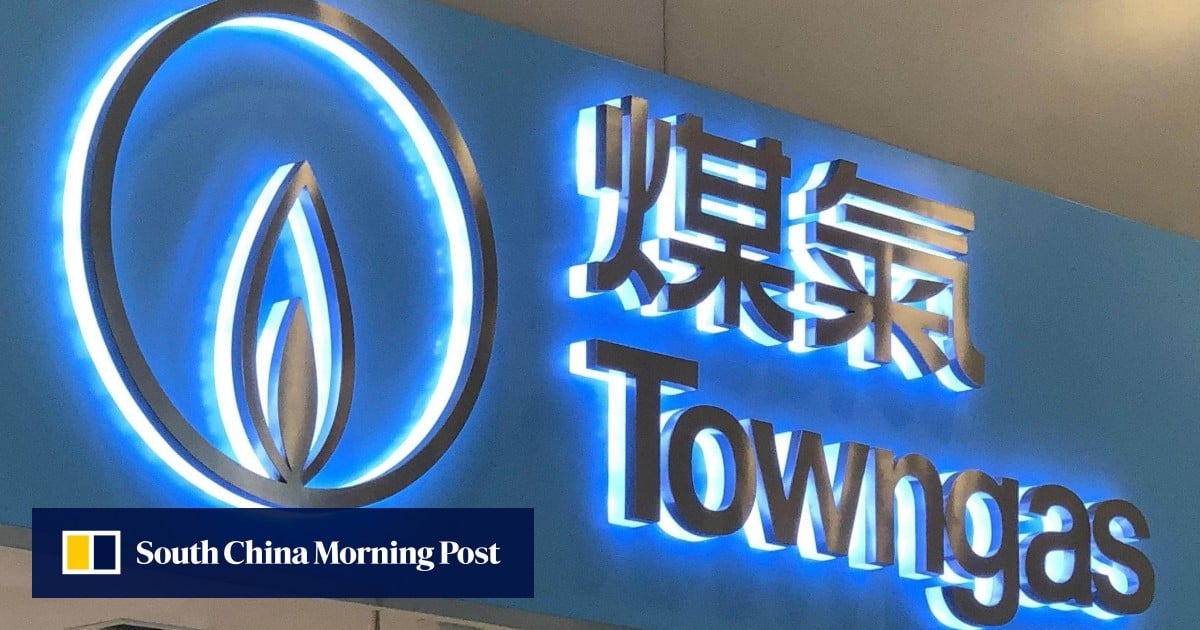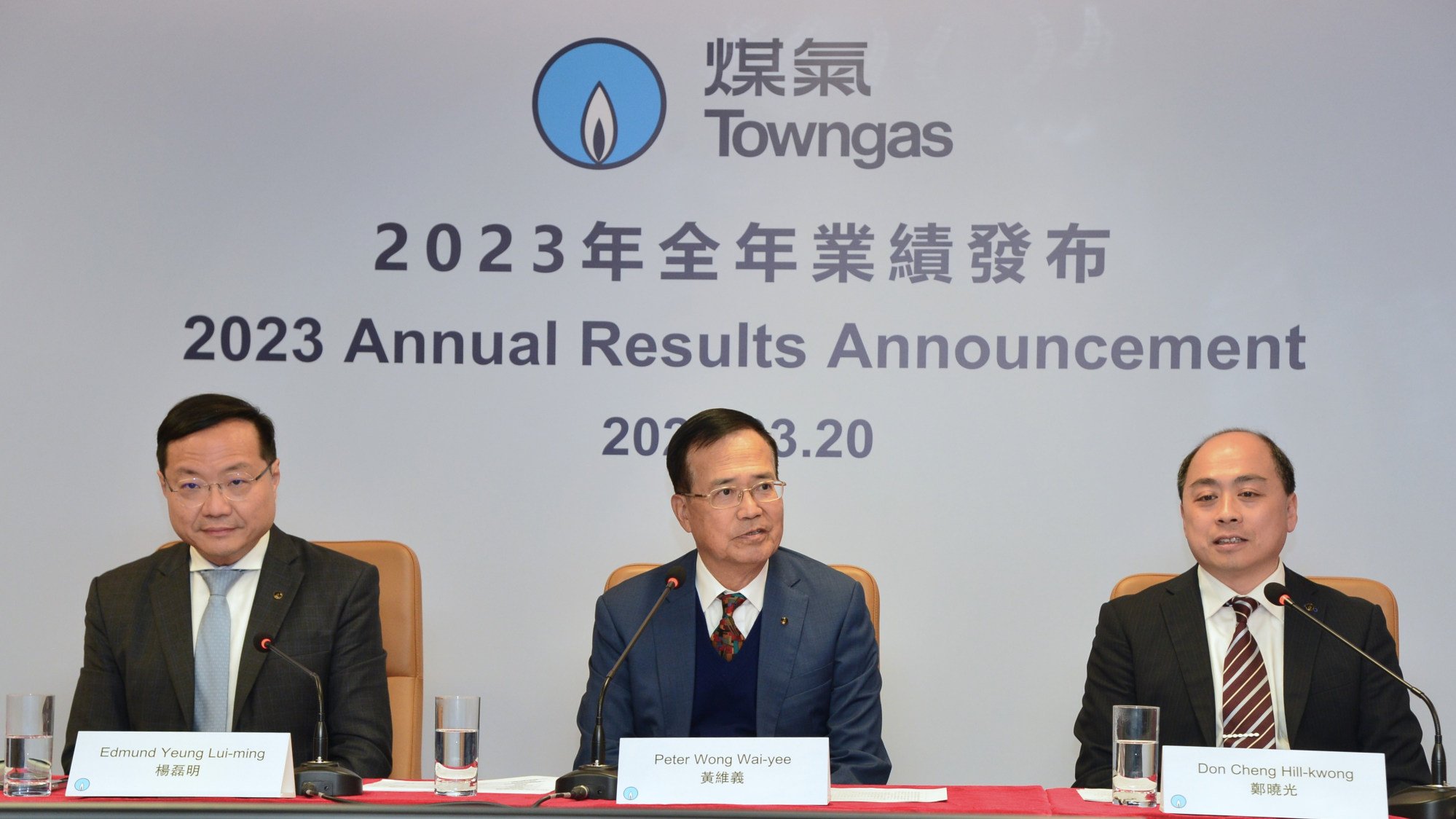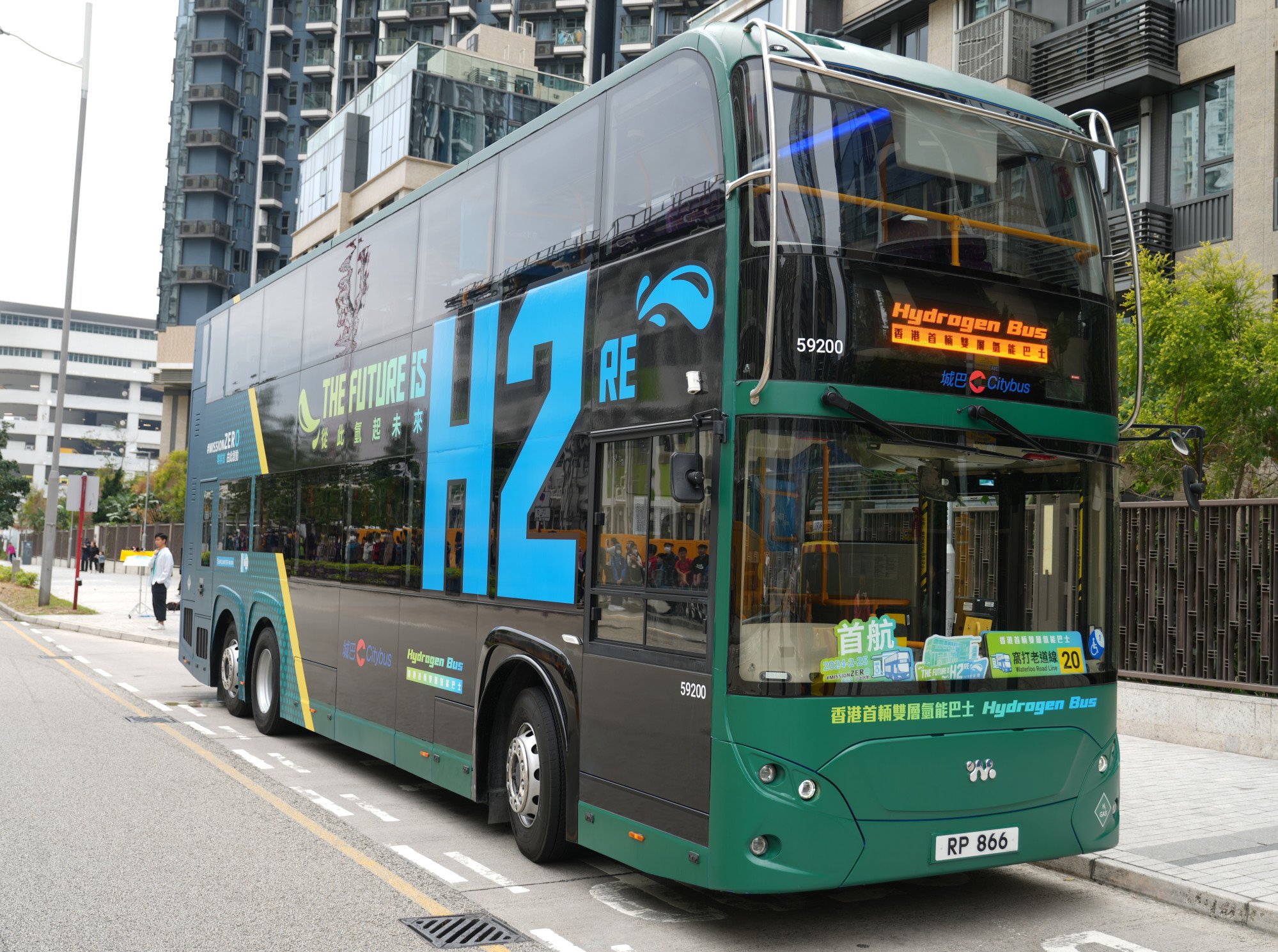
20 Mar Hong Kong consumers could see higher gas tariffs as Towngas grapples with rising costs, investments
Hong Kong and China Gas (Towngas) said it is under pressure to raise tariffs to keep up with rising costs and investments, after the city’s sole piped-gas supplier posted higher-than-expected profit.
“We do face pressure to lift gas tariffs this year as we need to invest further in our network infrastructure, including that for hydrogen production and distribution, to contribute towards Hong Kong’s decarbonisation effort,” Peter Wong Wai-yee, managing director, said on Wednesday.
Towngas, however, will adopt a cautious approach, he added.
The utility last raised its basic tariff by 4.4 per cent in August 2022 to meet rising operating costs and investment needs.

Towngas will adopt energy-saving measures to reduce costs, which have been rising because of general inflation and higher staff costs, according to Don Cheng Hill-kwong, general manager for commercial and industrial marketing and sales.
“We will strike a balance between the interests of customers, employees and investors,” he said.
The company, one of the largest natural gas distributors in mainland China, posted a 16 per cent jump in net profit to HK$6.07 billion (US$775.8 million) last year, beating analysts’ estimates of HK$5.88 billion.
Towngas proposed a final dividend of 23 HK cents per share, taking the full-year payout to 35 HK cents, the same as the previous year.
Given the challenging operating environment, the company is not in a position to resume handing out bonus shares to shareholders, according to Edmund Yeung Lui-ming, the chief financial officer. The company paused the long-standing tradition in 2021 after profits slumped because of the pandemic and elevated feedstock prices.
While gas sales in mainland China grew 8 per cent last year, in Hong Kong sales fell 1 per cent because of above-average temperatures and reduced use as consumers spent more time outside the city. Towngas is targeting a 1 per cent increase in sales in Hong Kong and 8 per cent on the mainland.
Towngas, which in recent years has ventured into new energy, including hydrogen, green methanol and sustainable aviation fuel, has entered into an agreement with Bravo Transport Services.

While the city aims to halve carbon emissions by 2035 from 2005 levels, Towngas’ operations in Hong Kong account for roughly 5 per cent of the city’s emissions, according to Wong.
He expects the company’s investments in hydrogen infrastructure to rise gradually over a number of years, enough to meet the needs of some 600 buses.
Towngas said its plant in Inner Mongolia began partial production of low-carbon fuels and chemicals from discarded tyres and coal in mid-2023. The company plans to gradually expand the plant’s capacity to 120,000 tonnes annually in the “coming years”, including green methanol for the carbon-intensive shipping industry.
Ecoceres, in which Towngas has a 44.2 per cent stake, is turning waste vegetable oil and animal fat into sustainable aviation fuel at its plant in Jiangsu province.
Asked about the company’s plans to supply green methanol and sustainable aviation fuel in Hong Kong, Wong said it depends on the government’s policies and timetable for introducing low-carbon fuels.
Separately, energy-to-water conglomerate CK Infrastructure Holdings posted a 3.6 per cent increase in net profit to HK$8.03 billion last year, beating analysts’ estimates of HK$7.71 billion. Excluding the one-off gain from the partial sale of Northumbrian Water in 2022, net profit increased by 12 per cent year on year.
The company proposed a final dividend of HK$1.85 per share, taking the full year payout to HK$2.56, 1.2 per cent higher than 2022.

